Last Updated on July 30, 2021
Simon Pegg has been a favorite of mine ever since the sensational SHAUN OF THE DEAD – as well as his work on the series Spaced. Throughout the years, the actor has become one of the most exciting working today. Whether he is battling aliens and a mid-life crisis in THE WORLD’S END or taking on one of the many franchise films he has appeared in, including MISSION IMPOSSIBLE and STAR TREK, he always brings his best.
In TERMINAL, Simon takes on a very dark character, one created by writer/director Vaughn Stein, and he’s fantastic. In fact, this cool little genre mash-up plays with a little film noir, sci-fi and other intriguing elements. We had the wonderful opportunity to chat with Mr. Pegg about both Star Trek and even which superhero franchise he'd like to be involved in which you can check out here. We also discussed his latest, as well as what we can expect from MISSION IMPOSSIBLE – FALLOUT – including Tom Cruise actually getting hurt – and working with Edgar Wright and Nick Frost again.
After speaking with Mr. Pegg, we sat down with the film’s writer and director. Vaughn Stein is a kind and talented fellow, and he discussed the look and the influences he had while making this fascinating, genre mashup of a new feature. Make sure you check out TERMINAL this weekend on demand or in select theatres, and don’t let anybody spoil anything for this one.
See what Simon Pegg has to say about the future of STAR TREK and superheroes here!
J: When you started out you were doing a lot of comedic roles working heavily with Edgar and everything. Was it difficult for you to transition – Because you're taking a lot of riskier roles now.
SP: Yeah.
J: And this is a pretty risky role.
SP: Yeah. The whole thing with comedy was really, when I was studying at university to do film and TV and theater and what have you, I never, at that point, assumed I would go into comedy as such. It was always… I kind of wanted to work for the RFC for quite a long time, and just do theater, and then comedy became a way of having some autonomy, and I sort of became a stand-up because it was a way of performing without having to kowtow to the man, as I saw it as a young idealistic 20-year old.
So that's kind of where I veered, and I met Edgar, and we had a shared interest in it, but I think with all our films with Shaun, and Fuzz, and The World's End, there was always vein of drama going through them that we tried to… You know, it's not funny when Shaun has to shoot his own mum, and it's not funny when you realize Gary King is an alcoholic.
J: Yeah!
SP: So I've always wanted to… I didn't particularly want to just do comedy, and lately I've felt like trying to move towards dramatic elements.
J: This character, he's gonna… I mean, I don't wanna obviously… There's a lot of secrets in this movie. Like, that last hour, I was like, "Shit! Oh my God…"
SP: It's like an avalanche of twists!
J: Yeah, you go f*cking dark.
SP: Yeah, yeah, it's very dark.
J: Was that the appeal? Just playing this really…?
SP: Yeah, it was. And also it was the fact that I like the script because it felt like a play. It felt like it was very theatrical, there's a lot of dialogue. I love the fact that it was a group of people that hadn't really made a film before, it was Vaughn's first feature. The team behind it, lucky chap, were AD's and they were working on other films in a lower capacity and decided to become producers and make a film. I loved that sort of dynamic.
It just felt like, "This is delicious." It feels fresh, and it's new, and it's original, and… Get on it.
J: You mentioned that it feels like a play, and it really does. That whole sequence with you and Margot is a great example. It had a rhythm to it…
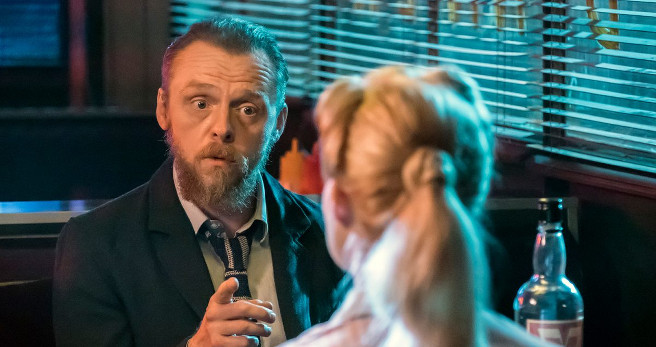
SP: Totally! Yeah. And it was like, just dialogue sitting across from each other. And that just really appealed to me.
J: I can imagine, coming from wanting to do theater.
SP: But it's also a unique mix of film noire with sci-fi. Yeah, it has that vibe. I think it's kind of… It's set in kind of a future in a way, and it's taken a lot from the noire aesthetic and created this little microcosm where it all happens, where it's seemingly they're the only people that exist.
I like that. It's stylistically interesting, and Budapest was a great place to shoot.
Chris, our DP was just amazing at, you know, 'cause we made this on a very small budget, but he lit it so beautifully. It was just before Blade Runner got in there, although Blade Runner's come out between.
J: Yes!
SP: But we were there first!
J: Yes. You were there first And I feel like there is kind of this, when it comes to science fiction, you can take on more controversial subject which you certainly do here – I mean, it's loaded with vengeance [Laughing]
SP: Yeah, absolutely, yeah. It feels like a very timely movie to me in that she is exacting her revenge on all the male toxicity that's existed in her life, you know?
J: Yeah.
SP: And she's doing it in a way that is manipulative and brutal, and it's very timely in that respect.
J: Well it's weird, because it is timely, but it also feels like one of those maybe a Rita Hayworth type of femme fatale.
SP: Right, the classic femme fatale. Yeah, absolutely. Vaughn's using the language of that classic cinema, the Mildred Pierce, that kind of thing.
J: But it definitely feels very timely.
SP: Yeah, yeah. When I watched it, actually, for the first time I realized just how on-point it was, really.
J: I finally caught I, TONYA for the first time, there's something about Margot that's just so incredibly dynamic, as is the chemistry between you two.
SP: Yeah, yeah.
J: Did you find that easily?
SP: We hit the ground running. She's so smart, and she's so… She's a producer on as well, so she had that head on a lot of the time. I watched her sort of, like, double-duty a lot of time on the movie. And I was really impressed at just how pragmatic she is, how smart she is in terms of what she offered to the script, how she was with Vaughn, and how she committed to the role. And it was really good fun to get into it. We had a lot of rehearsal time, which was good, and we got to know each other, and we chewed it out, and we just found that we got on really well, and we were able to take that into our performances, which I really enjoyed doing.
'Cause she's great. She's one of those people who is extremely… Obviously she is extremely beautiful, which could be distracting at first.
J: Sure.
SP: And you often underestimate good-looking people, and they deserve it, but she also brings the full range of her acting ability, which is super cool, particular for this role, which is dualistic to say the least.
Next Edgar, Nick and Simon feature and other upcoming projects
J: When are we gonna see you and Nick and Edgar again?
SP: Well we're just trying to, as always, as we have been since The World's End, it's like-
J: My favorite of the three.
SP: Mine too, actually.
J: Yeah.
SP: It's probably the most personal. But it's that carving out that moment of time. Nick and I have just started a production company in the UK called Stolen Picture, and we're producing movies, and mainly television, actually, but we've produced this film called Slaughterhouse Rulez, which is directed by Crispian Mills, and that's in a co-pro with Sony and Catalyst, and it's a horror comedy about a public school which is besieged by subterranean monsters after they sell off part of the land to a fracking company.
As a satirical horror-comedy it felt like a suitable first project for Nick and I.
J: Nice.
SP: So that's… we've got that on the go. We're waiting for… Edgar's gonna do, I think he's coming over to do something here, and then as soon as we can get the time, we'll do it. We're not… It's like, they're my family, and we speak every day, and we see each other whenever we're in the same city, but it's getting that time to work. There is no doubt in my mound whatsoever that we will do something, and Edgar regularly texts me and says, "We need to do a big, big thing next."
J: Yeah.
SP: And I'm like, "Yeah, yeah, yeah! When?" "I dunno!"
But it will happen.
MISSION IMPOSSIBLE – FALLOUT
J: What about MISSION IMPOSSIBLE – FALLOUT? That's looking amazing. What is the new chapter gonna bring that you're excited about that we haven't seen before that you can talk about?
SP: I think, well, once we realized on The Ghost Protocol, we, by happy accident, by Tom doing that incredible stunt on the Burj Khalifa, we realized how the audiences respond to the authenticity that he brings to it, by doing the stuff himself. So it's become our mantra, "The Stunts are Real," kind of thing. It's more, that ratcheted up again. It feels like every time we do one of these movies I think, "We couldn't do another one now, because we've taken it to the max, we can only go backwards now." And yet, here we are, with him having piloted a helicopter into a spiral and hung off it and jumped off it, and broken his ankle doing one of the smaller stunts in the movie, really, one of the less dangerous. And that's in the movie.
J: I love the fact that that take is in the movie. That's crazy!
SP: 'Cause it was the best take!
J: Yeah!
SP: The only problem with it was the extreme ankle break, but-
J: Holy shit!
SP: Ultimately it looked great. And then, when he shot the ensuing frames about three months later, he sorta limps into shot, like, "Ow, I just tweaked my ankle!" When really he'd shattered it.
It's kinda like… The temptation is to draw a comparison to Spectre, and the idea of everything that's gone before has come to this point, but it's less of a… It's not so much like it was all a plot, and all these different villains were part of the same process. It's more that the villain in this film is trying to convince Ethan that no matter what he does, no matter how many times you save you the world, it's only gonna get worse. And because he did that, he's still having to save the world.
So it's this kind of mind-fuck that Solomon Lane is laying on him, and it's great. I'm glad McQuarrie came back. I think it was… We had such a great system going. Him and Tom work so well together. He understands the film so much, it seems silly to jettison that in favor of a kind of accidental tradition which had come about, because obviously De Palma did the first one, John Woo picked up the mantle. It went quiet. J.J. had a go, but then went on to Star Trek, so we got Brad Bird. And then, after that, Brad went off to do something else, so we got Chris McQuarrie.
J: It was never, "Oo, let's do loads of films with different directors."
SP: It was a happy accident. And it felt like a nice way of defining each one for a while. With this one, Chris has tried to take that forward by hiring a whole new team behind the scenes, so the film feels different, has a different aesthetic. So it will feel like another, separate chapter, but it's just the first time we've had the same director.
And I think that we just struck a little bit of gold with that idea, that in a world where you can do anything with CG, and CG is a wonderful tool, and I watched Avengers yesterday and, wow! But also, when you're an audience member and you can see that it's not only Ethan Hunt hanging off a helicopter, it's Tom Cruise, who you know very well, hanging off the helicopter, it gives a frisson of extra tension.
'Cause when we watch it, we don't know if he's gonna live! That's the weird thing. There were moments on this film where we kinda said goodbye, not knowing if we'd see him again. It was… We joked about it, it was kind of… But it was real, you know?
J: That's a really creepy thing.
SP: Yeah. Leaving New Zealand when he was gonna do the helicopter stuff, it was like… "Alright, bye then. Maybe see you in London, maybe see you-" Hopefully you'll be around for the premiere!
J: He takes a lot of risks, doesn't he?
SP: He does! He literally risks his life for the audience, and some people would probably scoff at that and say it's silly, but it's not. It's testament to his kind of commitment to his craft. He genuinely cares about what the experience is, 'cause he lives, eats, breathes, sleeps movies. That's his life. That's what constitutes him in many ways, and I think he's so at pain, literally at pain, if you look at the footage of him breaking his ankle, to deliver an authentic thrill. 'Cause you can watch all manner of computer-generated spectacle on screen and not be that moved by it, you know?
J: Yeah.
SP: When you know it's the person then there's the extra edge of shock and take a breath, you know?
J: I'll never forget the first time, climbing the building, the… I'm just like, "That's insane! That's certifiable!"
SP: Yeah, I know! And people often say that about him, but he's the least insane person I know, because he's so meticulous about it. He's not reckless. It's not like, "Yeah, I'll, whatever." It's all planned, it's all choreographed, it's all brilliantly executed by a fantastic team for all of us, 'cause we all do our own stunts too, you know?
J: Yeah.
SP: Not obviously on his level.
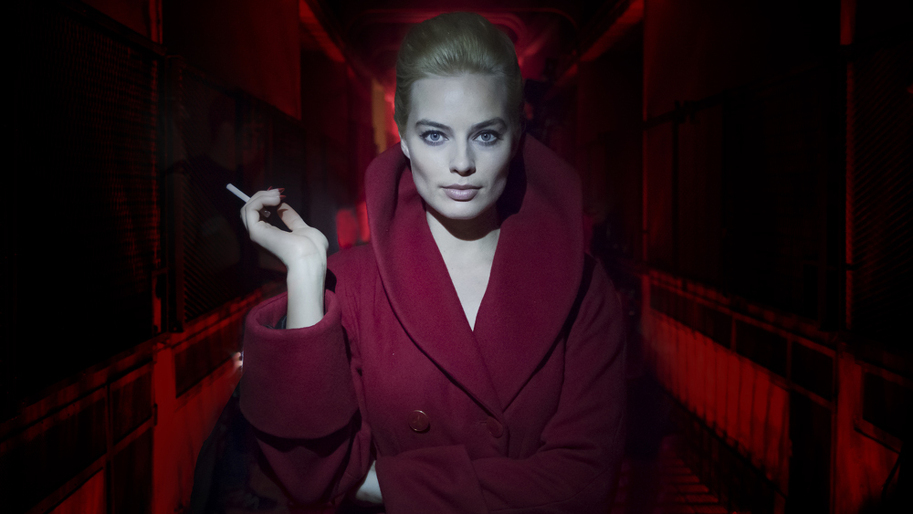
VAUGHN STEIN on Margot, and the look and influences of TERMINAL
J: You go to some really f*cked up places with this film. Where did this mix of sci-fi, film noir and Forties dialogue come from?
VS: I have problems [Laughing].
[It came from] three unhealthy passions as you can see from the film [Laughing]. I’ve always loved film noir. I love the evolution of it. I love sci-fi noir and I love that BLADE RUNNER and MINORITY REPORT setting where you utilize those tropes and sort of genre twists of noir, and use them in different types of stories. And I love dystopian literature since I was a kid. The first book I really fell in love with as a young adult was [George Orwell’s] 1984. I always loved the idea of sort of colliding noir and dystopia together to try and do something unique with a British sensibility about it.
And on top of that, I love the aesthetics of graphic novels. I love the idea of the urban fairy tale, the dark fantasy. It was those three weird, unhealthy, creative obsessions bouncing around at some point when I was twenty-four or twenty-five when it really sort of cemented into this idea. And I wanted to do something that was labyrinthine, with two interweaving stories linked together by the central character. She would utilize all of those relatively misogynistic and old-fashioned ideas of noir; the femme fatale, the damsel in distress, the kooky waitress in a modern inclination. That she would be able to have a chameleonic way about her that she could inhabit different characters to be all things to all men.
We used to talk about her having a like a costume box in the corner of her room that she could pull these looks out, like the sexy stripper, the femme fatale or whatever it needs to be in order to ensnare her prey. To have someone like Margot [Robbie] and someone with that unbelievable talent and that genius in terms of the intelligence she brings to the role, it was a dream come true. That’s kind of where it came from.
J: How did she get involved?
VS: So Tom Ackerley and Josey McNamara are Margs’ producing partners. They own LuckyChap Entertainment together. We were runners and assistant directors together in the British film industry. We used to run around and make tea and coffee, and we worked on the same teams. We were always really good friends and we always talked about making films together. They met Margs on a film called Suite Française and they became really friendly and they talked about setting up a production company together. I met Margs socially around that time and we just got on like the house on fire. I showed her the script and we started talking about it. And I knew they wanted to do something special. They had an amazing energy about them as a production company. As soon as Margs said she was interested, then we started working on the script together. It was unbelievable. She brought so much to it. She’s a fiercely intelligent woman and a brilliant reader. She really pushed the script and really steered it towards what it became.
J: And about the scenes she shares with Simon are just a blast to watch, especially that first scene. You definitely get a bit of THE MALTESE FALCON sense of rhythm with the dialogue.
VS: Thank you so much! That’s really lovely you say that. I mean I love those scenes, writing and watching them. I have one of my absolute heroes in Simon and the most unbelievable actress in Margs, and they are both close friends giving everything in these scenes. Emotionally they kind of form this great, cozy, kooky, macabre space. It was incredible. You know the Hopper painting of the girl in the cafe? That was weirdly imprinted in my mind. It was just something that sort of came out, this idea of a terminally ill man who couldn’t quite get the guts up to do himself in. He’s sort of looking for solace and comfort in an all night cafe. That just arrived really fully formed, and I knew when I was working on that part of the story how much I’d enjoy shooting it.






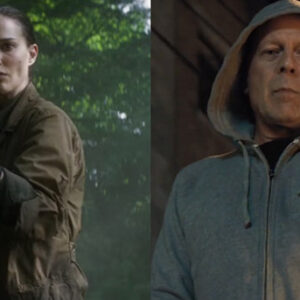
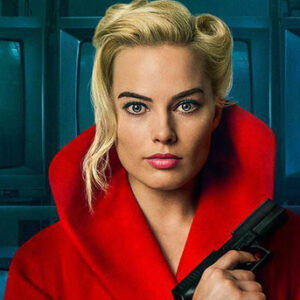
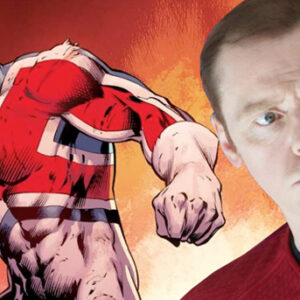
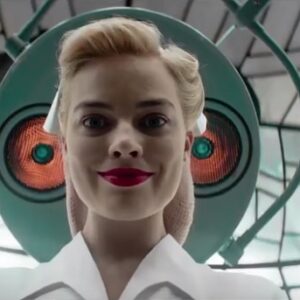










Follow the JOBLO MOVIE NETWORK
Follow us on YOUTUBE
Follow ARROW IN THE HEAD
Follow AITH on YOUTUBE